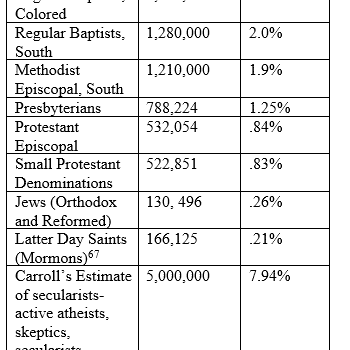Nothing new from me this week, but here is an article on gratitude that I wrote in 2008. It originally appeared at Inside Higher Education. Happy Thanksgiving! –JF
It was a typical 1970s weekday evening. The sky was growing dark and I, an elementary school student, was sitting at the kitchen table of a modest North Jersey cape cod putting the finishing touches on the day’s homework. The back door opened — a telltale sign that my father was home from work. As he did every day, Dad stopped in the laundry room to take off his muddied work boots. As usual, he was tired. He could have been covered with any number of substances, from dirt to paint to dried spackle. His hands were rough and gnarled. I kissed him hello, he went to the bathroom to “wash up,” and my family sat down to eat dinner.
I always knew how hard my father worked each day in his job as a general contractor. When I got older I spent summers working with him. I learned the virtues of this kind of working class life, but I also experienced the drudgery that came with laying concrete footings or loading a dumpster with refuse. I worked enough with my father to know that I did not want to do this for the rest of my life. Though he never told me so, I am sure that Dad probably didn’t want that for me, either.
I eventually became only the second person in my extended family to receive a college degree. I went on to earn a Ph.D. (a “post-hole digger” to my relatives) in history and settled into an academic life. As I enter my post-tenure years, I am grateful for what I learned from my upbringing and for the academic vocation I now pursue. My gratitude inevitably stems from my life story. The lives that my parents and brothers (one is a general contract and the other is a plumber) lead are daily reminders of my roots.
It is not easy being a college professor from a working-class family. Over the years I have had to explain the geographic mobility that comes with an academic life. I have had to invent creative ways to make my research understandable to aunts and uncles. My parents read my scholarly articles, but rarely finish them. My father is amazed that some semesters I go into the office only three days a week. As I write this I am coming off of my first sabbatical from teaching. My family never quite fathomed what I possibly did with so much time off. (My father made sense of it all by offering to help me remodel my home office, for which I am thankful!) “You have the life,” my brother tells me. How can I disagree with him?
Gratitude is a virtue that is hard to find in the modern academy, even at Thanksgiving time. In my field of American history, Thanksgiving provides an opportunity to set the record straight, usually in op-ed pieces, about what really happened in autumn 1621. (I know because I have done it myself!). Granted, as public intellectuals we do have a responsibility to debunk the popular myths that often pass for history, but I wonder why we can’t also use the holiday, as contrived and invented and nostalgic and misunderstood as it is, to stop and be grateful for the academic lives we get to lead.
Thanksgiving is as good a time as any to do this. We get a Thursday off from work to take a few moments to reflect on our lives. And since so many academics despise the shopping orgy known as “Black Friday,” the day following Thanksgiving presents a wonderful opportunity to not only reject consumer self-gratification, but practice a virtue that requires us to forget ourselves.
I am not sure why we are such an unthankful bunch. When we stop and think about it we enjoy a very good life. I can reference the usual perks of the job — summer vacation, the freedom to make one’s own schedule, a relatively small amount of teaching (even those with the dreaded 4-4 load are in the classroom less than the normal high school teacher). Though we complain about students, we often fail to remember that our teaching, when we do it well, makes a contribution to society that usually extends far beyond the dozens of people who have read our recent monograph. And speaking of scholarship, academics get paid to spend a good portion of their time devoted to the world of ideas. No gnarled hands here.
Inside Higher Ed recently reported that seventy-eight percent of all American professors express “overall job satisfaction.” Yet we remain cranky. As Immanuel Kant put it, “ingratitude is the essence of vileness.” I cannot tell you how many times I have wandered into a colleague’s office to whine about all the work my college expects of me.
Most college and university professors live in a constant state of discontentment, looking for the fast track to a better job and making excuses as to why they have not landed one yet. Academia can be a cutthroat and shallow place to spend one’s life. We are too often judged by what is written on our conference name badges. We say things about people behind their backs that we would never say to their faces. We become masters of self-promotion. To exhibit gratefulness in this kind of a world is countercultural.
The practice of gratitude may not change our professional guilds, but it will certainly relieve us of our narcissism long enough to realize that all of us are dependent people. Our scholarship rests upon the work of those scholars that we hope to expand upon or dismantle. Our careers are made by the generosity of article and book referees, grant reviewers, search committees, and tenure committees. We can all name teachers and mentors who took the time to encourage us, offer advice, and write us letters. Gratitude may even do wonders for our mental health. Studies have shown that grateful people are usually less stressed, anxious, and depressed.
This Thanksgiving take some time to express gratitude. In a recent study the Harvard University sociologist Neil Gross concluded that more college and university professors believe in God than most academics ever realized. If this is true, then for some of us gratitude might come in the form of a prayer. For others it may be a handwritten note of appreciation to a senior scholar whom we normally contact only when we need a letter of recommendation. Or, as the semester closes, it might be a kind word to a student whose academic performance and earnest pursuit of the subject at hand has enriched our classroom or our intellectual life. Or perhaps a word of thanks to the secretary or assistant who makes our academic life a whole lot easier.
As the German theologian and Christian martyr Dietrich Bonhoeffer explained, “gratitude changes the pangs of memory into a tranquil joy.”












